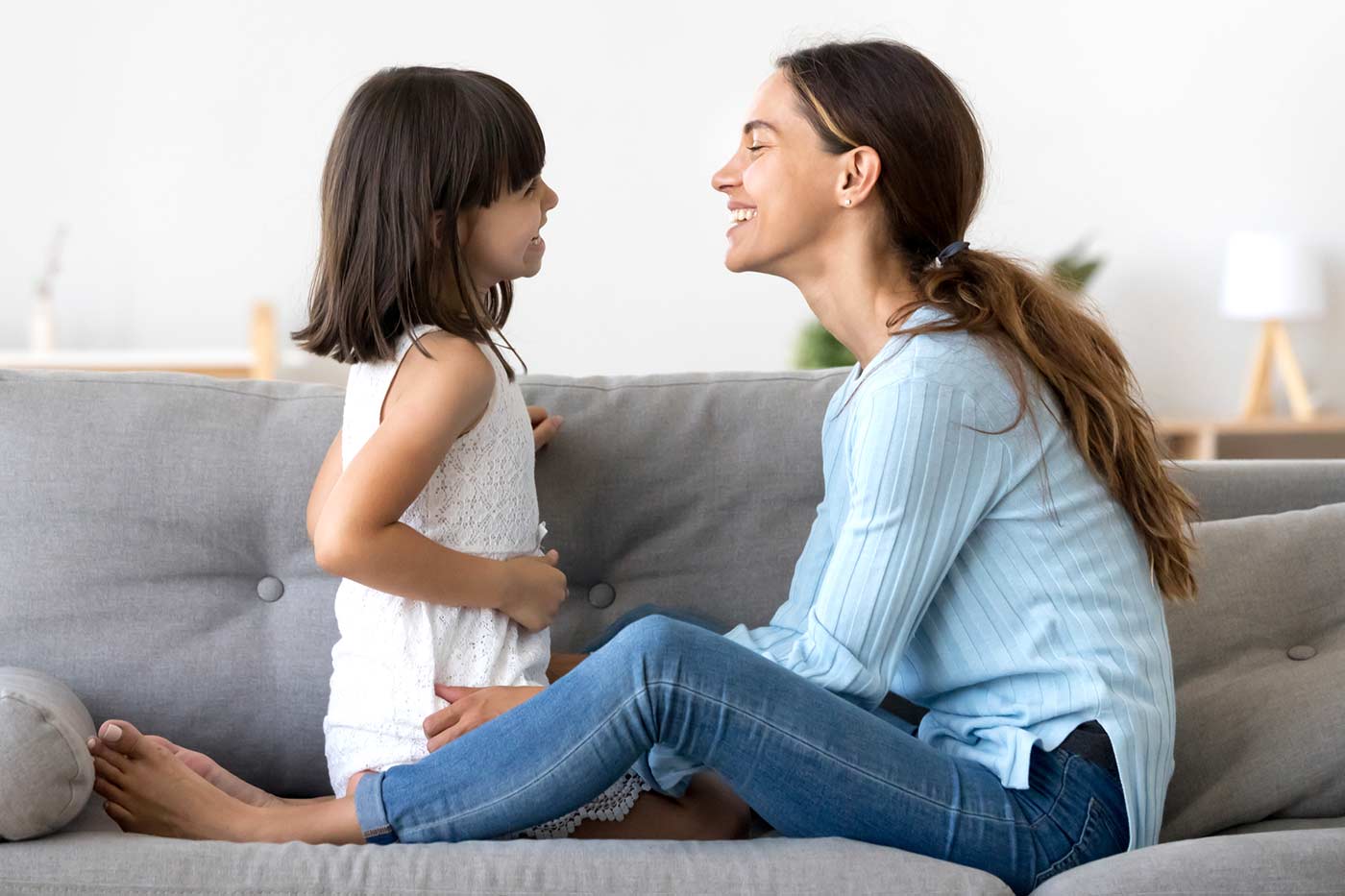31 Powerful Conversation Starters for Kids
Itching to get a word out of your child? Join me as I share thoughtful conversation starters for kids to get you chatting. With a few question prompts and simple topics, you’ll learn so much more about your family.

Don’t kids already talk so much as it is? you might ask.
I tend to encourage conversations with my kids to flow as they naturally do, but sometimes I find that a little prodding is needed. This is especially true when they seem bored or if some of them are taking over the conversation. I’ll ask a few open ended questions for kids if I want to learn more about what they think.
These moments provide a chance to talk that can often get buried in the hustle of the day. Whether during nightly dinners or waiting in line at the grocery store, take a look at these conversation starters for kids. I hope you find them useful, as these parents said:
“Amazing conversations! It’s helping my kids think and behave positively.” -Nancy
“I printed this out and stuck it on the wall near our dining room table. We’ve been using it to have some fun discussions with our kids. Here’s to meal times that feel a little slower paced and a little more meaningful!” -Laura
Conversation starters for kids
- What was your favorite part of the day?
- Who did you play with at school today?
- How were you kind to someone today?
- What are you proud of?
- What are you thankful for?
- What’s one good thing you’re really good at?
- Who’s the nicest person you know?
- Which family member do you love seeing the most?
- What are you looking forward to this [season/day/week/month]?
- How would you change the world when you grow up?
- What could our family do that would make the world better?
- What superpower would you like to have if you were a superhero?
- If you could only keep one toy, which toy would it be?
- Pretend you could be the teacher: what rules would you have in the classroom?
- If you could be an animal, which one would you be?
- Would you rather [blank] or [blank]? (e.g. go to the pool or the beach)
- If we spent time alone just you and me, what would you want to do?
- Let’s say you could be any age. What age would you be?
- If you could be any cartoon character, who would you be?
- What does it mean to be a good friend?
- What do you think makes a family close?
- What makes you feel happy/upset?
- How do you cheer yourself up when you feel sad?
- What’s your favorite book?
- What’s your favorite meal?
- What do you like best about our family?
- What’s your favorite thing to do as a family?
- What’s your favorite thing about [a family member]?
- What do you like best about school [or camp, swim class, etc.]?
- What’s your favorite holiday of the year?
- What’s your favorite room in our home?
Expert tip
Print out these questions, cut each one out, and place them in a jar. You can then take turns asking one question a night, or have each person pick a question to answer.

Frequently asked questions
While you likely talk to your kids every day, asking conversation starters offers many benefits.
They learn how and when to talk versus listen as well as how to value how others feel. You’re talking about topics that may not otherwise be shared. You’re able to practice gratitude and show empathy for how others feel, all while strengthening the family bond.
The best way to keep them talking is by asking “why” and “how.” Have them explain why they love Halloween or how they’re going to enforce rules as a teacher. And remember, there isn’t a “right” answer, no matter how whimsical theirs might be. It’s fine for them to say they’d love to be a unicorn or fly to the clouds.
The bottom line
Some days, you can’t seem to get your kids to stop talking, but there are those moments when you’d like to learn a little bit more about them. Thankfully, you now have several conversation starters to ask—whether over nightly dinners or even waiting in line at the grocery store.
Get more tips:
- How to Stop Your Toddler Whining
- 7 Smart Ways to Protect Your Child from Predators
- How to Deal with a Child That Cries Over Everything
- How to Discipline a Toddler Who Doesn’t Listen
Free email challenge: Looking for actionable steps and quick wins in parenting? Join the Better Parenting 5-Day Challenge! We’ll tackle one actionable tip per day that you can do right away to transform the way you raise your child. As one parent said:
“Thank you for all your help! Yesterday was a night and day difference in my daughter’s tone of voice. This challenge is good for me because I struggle a lot with my tone of voice and giving them my full attention.” -Tina D.
Join my newsletter and sign up today—at no cost to you:

